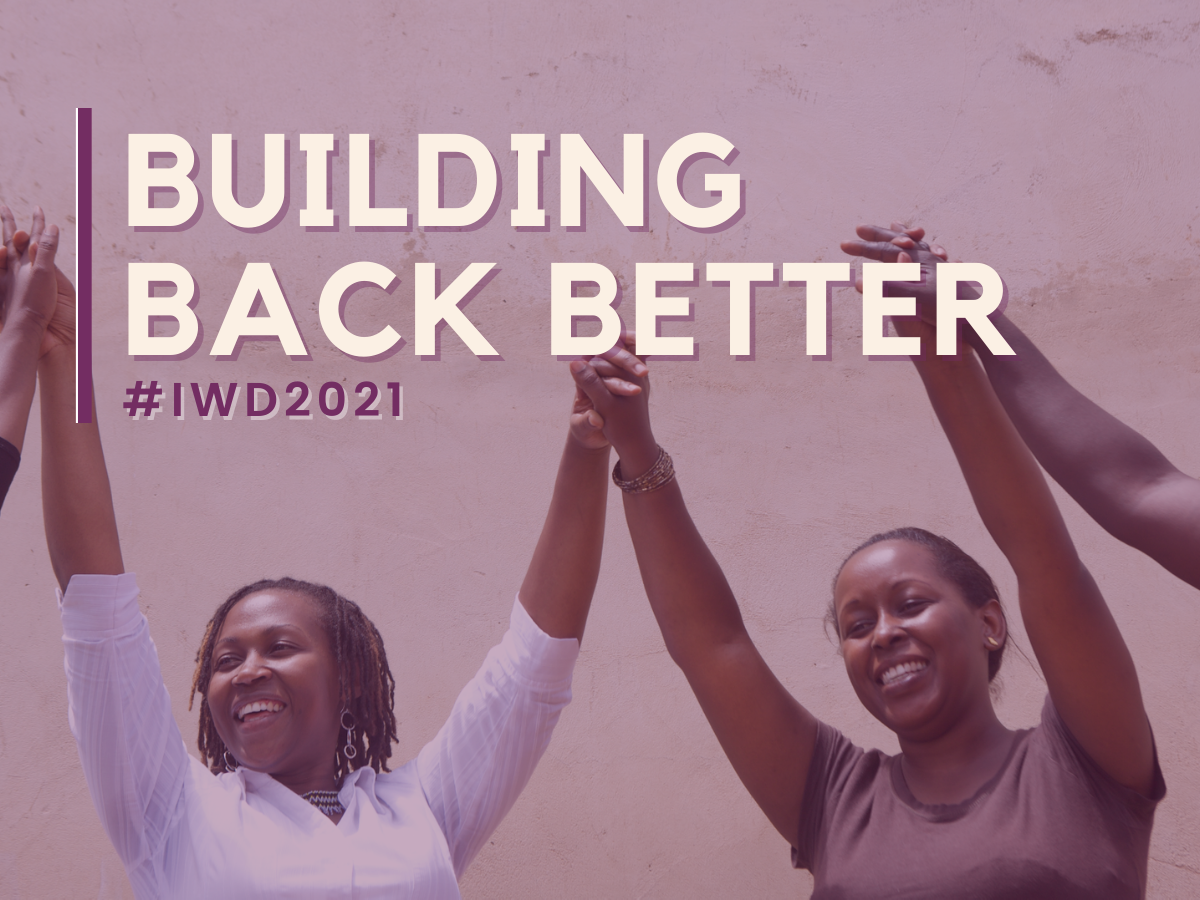This International Women’s Day, COFEMinists stand in solidarity with our sisters worldwide and celebrate our collective strength and resilience. Over the last year, countless women and girls have faced unimaginable challenges and continue to rise against all odds.
The COVID-19 pandemic has revealed and exacerbated what we have long known to be the case; women and girls in their diversity shoulder the burden of gender inequity and inequality. We are not only striving to survive in a pandemic; we are also facing the double, if not triple, burden of gender inequalities, structural racism, and escalating violence against us that the pandemic has laid accelerated. Moreover, we face the wrath of patriarchal structures that have intensified during the pandemic. We join hands with our fellow activists as we all #ChooseToChallenge the patriarchal structures that continue to wreak havoc on women and girls’ lives.
Women and girls have disproportionately borne the brunt of the economic and social fall-out associated with COVID-19. On the economic front, our businesses and livelihoods, which tend to be concentrated in the informal sector, have been hardest hit; and the widening global gender poverty gap will push more women than men into poverty due to the pandemic’s economic consequences. Women of color, in particular, have been disproportionately impacted. They have been forced to leave the job market in staggering numbers and put in compromising positions as frontline workers. There has been a well-documented pandemic-induced uptick in violence against women. Thousands of girls have been pushed into child marriages, and many more will be forced to marry over the ensuing months. School closures have led to disruptions that could ultimately mean that many girls will never return to school while many have faced violence in homes. These challenges only begin to touch the surface of the enormity of the impact of COVID-19 on the lives of women and girls.
We #ChooseToChallenge the narrative that these impacts were not foreseeable. Past pandemics and epidemics have highlighted the gendered dimensions of any global health challenge. We know from research during the SARS outbreak that women are less likely to seek treatment due to various factors, including poverty and lack of mobility. Similarly, the Ebola outbreak taught us that women’s unpaid care labor made them more susceptible to contracting the disease and that lessons from the Ebola crisis in West Africa and DRC already show evidence of increased violence against women and girls. Studies on Zika highlight the stigmatization of women who were blamed for transmission of the virus.
This International Women’s Day, let us vow to make sure that the last year’s challenges lead to concrete positive changes in the lives of women and girls in the long run. For us, #ChooseToChallenge means choosing to build back better and challenging practices that ignore the pandemic’s impact on women and girls in rehabilitation and recovery efforts. We demand that women and girls are at the center of all COVID-19 recovery efforts. We will continue to work towards a world that values women and girls’ lives and where their voices are heard in all decision-making and leadership structures.
